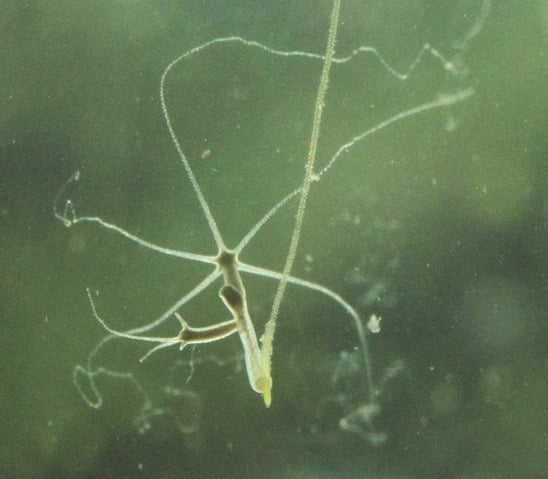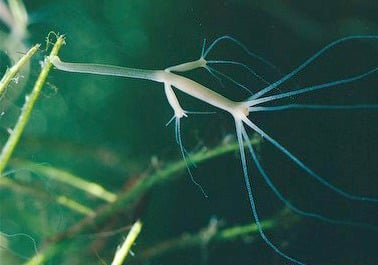Scientists are intrigued by a peculiar marine creature dubbed the “Brown Hydra,” as per reports from The Sun. This tiny jellyfish-like organism, measuring around 25mm in length, is not only long-lived but also harbors the ability to transmit infectious cancer.
The Astonishing Discovery
The Brown Hydra, commonly found in ponds, lakes, and rivers, has long fascinated biologists due to its impressive longevity. However, a recent discovery by researchers from the French National Scientific Research Center (CNRS) unveiled an even more fascinating trait: the ability to pass on cancer across generations.

Evolutionary ecologist Sophie Tissot, who led the study, emphasized, “Human activities may inadvertently create conditions favorable for the spread of this cancer.” Concerns are rising about the potential for cancer to spread due to human influence, especially given heartbreaking examples like the Tasmanian devil in Australia, where over 80% of the population has been affected by the infectious “devil facial tumor disease.”
Cancer Transmission and Research Prospects
The researchers observed how the Brown Hydra passes on infectious tumors to subsequent generations. In some cases, the tumors spread rapidly, while in others, they gradually disappeared. This has led to a hypothesis that this species may hold clues about cancer propagation and that the propensity for transmission is so high that subsequent generations remain affected.
According to Dr. Antoine Dujon, the aim of the research is to understand how cancer is transmitted across generations to gain deeper insights into the mechanisms of infectious tumors. “This study aims to explore the origins of cancerous tumors and how they are passed on through generations, offering new perspectives on infectious cancers,” he explained.

Significance for Animals and Ecosystems
The findings from this research could significantly contribute to understanding how cancer spreads in animals at high risk. Particularly, gaining a deeper understanding of cancer development and transmission in the Brown Hydra may offer valuable insights for protecting endangered species, such as the Tasmanian devil.
“By learning about how infectious tumors form and progress in the Brown Hydra, we can apply this knowledge to control and prevent the spread of similar cancers in other species,” added Dr. Dujon.
These studies not only help protect animals but also offer hope that novel cancer treatments may be developed in the future, thanks to enhanced understanding of infectious tumor propagation.
Questions About Impact on Humans
While it is unclear if the Brown Hydra can provide any insights into cancer in humans, studying how cancer spreads in animals remains key to a deeper understanding of the disease. Meanwhile, human activities that continue to impact ecosystems may inadvertently increase the risk of spreading infectious cancers.
Scientists are continuing their investigations into this enigmatic marine creature, hoping to find solutions that will not only protect animals but also aid humans in the fight against cancer in the future.
5 Ways to Reduce Your Cancer Risk When Enjoying Barbecued Meat
Introducing: The Ultimate Guide to a Safer, Healthier BBQ: 5 Ways to Reduce Cancer Risks.
We know that nothing beats a delicious BBQ, but are we aware of the potential dangers lurking behind this beloved cooking method? It’s time to uncover the truth and learn how to enjoy your grilled favorites without compromising your health. Discover the secrets to a safer BBQ experience and feast without fear.





































